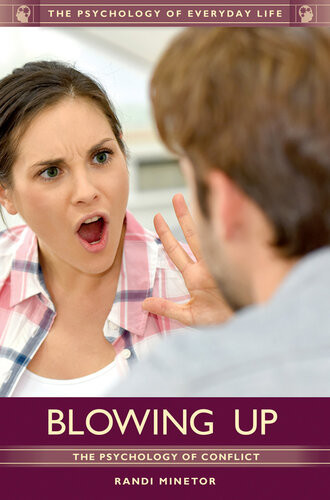

Most ebook files are in PDF format, so you can easily read them using various software such as Foxit Reader or directly on the Google Chrome browser.
Some ebook files are released by publishers in other formats such as .awz, .mobi, .epub, .fb2, etc. You may need to install specific software to read these formats on mobile/PC, such as Calibre.
Please read the tutorial at this link: https://ebookbell.com/faq
We offer FREE conversion to the popular formats you request; however, this may take some time. Therefore, right after payment, please email us, and we will try to provide the service as quickly as possible.
For some exceptional file formats or broken links (if any), please refrain from opening any disputes. Instead, email us first, and we will try to assist within a maximum of 6 hours.
EbookBell Team

5.0
58 reviewsWhy does conflict surround us in everyday life, from spats between individuals to major conflicts involving large groups? Is conflict inevitable? Why are conflicts and differences of opinion often so hard to resolve? Blowing Up: The Psychology of Conflict focuses on interpersonal conflict and the ways that this level of conflict can move beyond the original relationship to permeate larger constructs—small groups, large groups, whole organizations, and even entire nations. By examining both the positive and negative consequences of conflict—and by documenting its existence as normal and common—readers can appreciate how conflict does not immediately equate to negative feelings and how it also can be useful in creating rules and laws, aiding in negotiation, and bringing people together to work toward a common goal.
This clear and accessibly written book in Greenwood's Psychology of Everyday Life series provides students with an understanding of the important role conflict plays in our lives, the many forms conflict may take, and the ways that conflict can actually be constructive and useful as well as destructive to relationships, discussions, and groups. The historical overview of established theories and the study of conflict to date provides readers with invaluable perspective into the subject by identifying and analyzing specific conflicts, including well-publicized conflicts in foreign countries. The book also charts conflict throughout the life cycle to help students identify the reasons for conflicts that occur in their own lives—with parents, friends, siblings, employers, romantic partners, and people in authority.